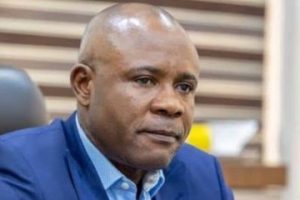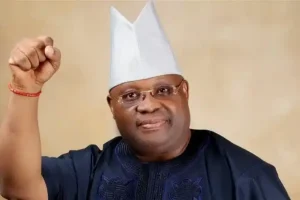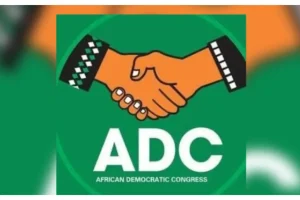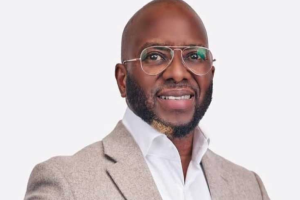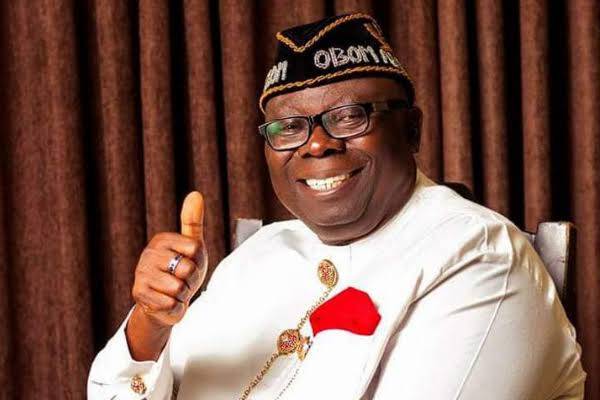
You are an Electrical/Electronics Engineer by training. You also have a Master’s degree in Business Administration and PhD in Public Administration. Why did you join politics?
You are now taking me to refresh my knowledge to what happened in 1999 when I was to join the Council of Registered Engineers. About four professors sat to examine me. The normal condition of joining COREN is that you must have practised for a specific number of years and you must also show what you have done. I was lucky that when I graduated in 1982 and served as a corps member under the National Youth Service Corps scheme in 1983, I contested an election on the platform of the National Party of Nigeria and I won as a corps member, and I did what I was able to do.
In Nigeria, many look at people with properties. But that was not what actually took me to politics. I veered into politics to give service because when I was a student, I needed support. I was an indigent student; I couldn’t see anybody to help me. I was told that there were representatives at that level that were paying them N15,000 as constituency allowance. So, I felt that would help me to grow by giving me support to do my project. But it was the person who gave me my wife that gave me money to do my project. That is why I have continued to feel sad about her demise.
When I got enrolled into the Federal Government Technical Science School, Yaba, Lagos, to do Advance City and Guilds in Electrical Installation, one Prof Salau, who was my lecturer in 1975, asked me why I joined politics? I said, ‘Prof, if I don’t go into politics, my place will not be developed and my people will not be lifted out of ignorance and misconceptions’. But today, I give thanks to God because where I came from was a bush; people used to call us children of those who fetched firewood. But I was able to create Obot Akara in 1976. So, as an electrical engineer, I went into politics to render service.
Many Nigerians see politics as an unworthy venture because of unfulfilled promises by politicians. Do you agree with this?
It depends on the perception. Like I said earlier, if I had not gone into politics, I don’t think I would have been able to attract government presence and support to build bridges, which was done by Governor Udom Emmanuel. The 24-kilometre road in my community was done by Victor Attah when I was his deputy. All these were the consequences of my joining politics. Others have also come out to join politics because of these; people have gone to school; they have water, they have clinics and schools. So, I didn’t go into politics because I wanted to make money. I made money, the houses I built; even this one was not built when I was in the Senate. It was built in 2017 before my people called me to contest the election in 2019. So, when I assess myself, put myself on a scale, and I look around, I discover that I have not seen personal gains, but I have seen corporate gains.
You said Obot Akara was created by you. What do you really mean by that?
Obot Akara is a local government. I wrote the paper and defended its creation before the Chief (Arthur) Mbanefo panel that was set up by the late Sani Abacha regime in 1996.
You sound so passionate about the development of your place. Can you point to some of the things you have been able to do in politics for your people?
If I were not in politics, I don’t think I would have spent my resources to build the Obot Akara Bridge. Have you gone to Umuahia Road? That bridge was impassable between 1999 and 2001. Even when I lost my father, I was to bury him within a period of two weeks and I went and persuaded the bishop and he said I must bury my father. I had to create a by-pass to enable me to bury my father. But at the end of the day, I wore a beautiful suit and went and laid flat before Chief Tony Anenih, who was the federal Minister of Works and Housing and one minister of state from Kaduna. I persuaded them to support me to build the bridge. I remember the then governor of Cross River State, Donald Duke, asking me, ‘Why can’t your governor support you to build the bridge?’ He told me that he took out a loan to construct a road to his deputy governor’s community in northern Cross River.
But the then governor of Akwa Ibom State, Attah, did not support me. So, I went and asked the then Minister of Works, and he said he had no budget for it and that if the work was going to exceed N30m, he did not see its possibility. I begged him to try and help me. And he eventually awarded the job at the cost of N49m and I took up my phone and called one engineer from here; he is still alive. I asked, ‘How much do you think that job can cost’ and he said about N24m. I said, if it is N24m, why would I go and lie down before someone? This is because at that time, I had a flourishing business in Lagos that I could afford to give N24m on behalf of myself and my people. So, I gave him N24m and he couldn’t finish the job. The Federal Government through Chief Tony Anenih awarded the job at a fixed contract sum of N49m and only released N30m, but that job was finished at N64m. So, who bore the N34m? It was me, Christopher Ekpenyong. So, when you talk about my contributions, you are passing through a Federal Government road constructed by me. I lost N34m; I did not go into politics to amass wealth but to render service.


